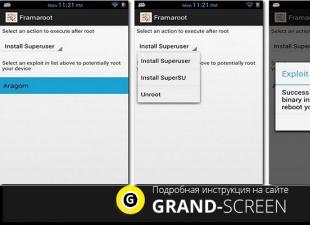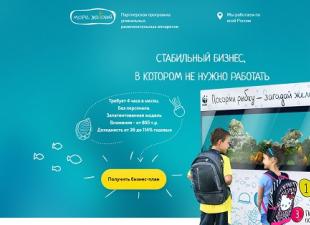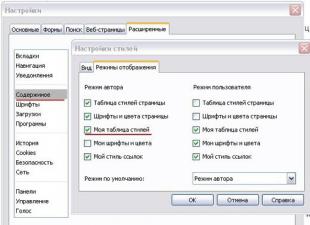At the moment, the outdated library as a social institution is losing its relevance. However, others are emerging or old ones are being rehabilitated into completely new social enterprises and cultural institutions. Currently, a librarian or, as this profession is called in the language of the professionals of this organization, a specialist in library and information activities, must be able to not only arrange books on shelves. This is a whole system of work and responsibilities that include the latest information technologies and projects.
Let's figure out what library and information activities are. How can a specialist with such a diploma work?
Introduction to the profession
Management of library and information activities by specialists in this field, coupled with innovative technologies being introduced into modern libraries, information and cultural centers, makes it possible to open access to the most valuable exhibits for visitors. And these are sometimes historically important and especially protected documents, funds and materials, which can now be easily accessed by ordinary library visitors using the latest information technologies.
Where to go to study?
In our country, the specialty “Library and Information Science” can be obtained in more than 40 universities, institutes and academies. Among them:
- Moscow State and Capital Linguistic University.
- Arctic State Institute of Arts and Culture.
- Tyumen State Academy of Culture, Arts and Social Technologies.
- named after the first President of Russia B.N. Yeltsin.
Basics of training
- methodical;
- teaching;
- information and analytical;
- scientific research;
- organizational and managerial;
- cultural and educational;
- design and expert;
- psychological and pedagogical.
What is the job?
The main task of the work is the formation, processing and classification of information and documentary funds, as well as ensuring their complete safety and organizing their recovery or restoration.
The main work of a library and information specialist is as follows:
- implementation of information diagnostics and modeling, that is, information and analytical processing of information;
- research into the qualities of information resources, their adjustment and processing;
- identification and evaluation of innovative experience;
- work and study of consumers of information and library resources;
- design and implementation, that is, the specific implementation of services for users of these resources;
- development of innovative projects for this environment to improve the provision of user services, as well as internal social partnerships.
Prospects
Many students ask the question when they enroll in the Department of Library and Information Science: “Who can I work with such a diploma?”
Having become a specialist in this field, you can find a job suitable for your profession in:
- libraries;
- cultural and leisure centers;
- information and information-analytical centers and agencies;
- teaching;
- publishing houses and editorial offices;
- multimedia centers.
But, of course, a certified specialist with a higher education obtained in the “Library and Information Activities” profile will know exactly who to work with. Almost all higher educational institutions have the practice of selecting a place for further work after study for each student interested in this.

Subjects of study of students
The professional standard for library and information activities involves training in subjects such as:
- library science;
- bibliography;
- library journalism;
- library ethics;
- document management;
- Information Systems and technology;
- Informatics;
- social communications;
- in scientific and technical activities;
- foreign languages;
- theory and history of literature;
- children's literature and reading;
- quality management;
- philosophy;
- history and some others.
The specific set of subjects depends on the student’s chosen educational profile.
Example
For example, a specialist in the training profile “Library and information work with children and youth” will:
- Anthropology of Childhood training line;
- participation in folklore and ethnographic expeditions;
- increasing the degree of education in the course "Theory of Children's Literature and Methodology of Children's Reading", as well as much more.

Educational programs
Educational programs and profiles for which specialists are trained in the field of “Library and Information Activities”:
1. Technologies of automated library and information resources.
In this profile, students study:
- consistency of information flow in the social environment;
- basic rules for the operation of information systems and networks;
- in all types of its manifestations;
- deep understanding of document flows in the library field, as well as the entire available collection and various areas of library activity.
A trained specialist with such skills and abilities can easily work with full automation library technologies using multimedia.
2. Management and management of data resources for the innovative development of scientific and technical activities of libraries.
Professionals of this profile are engaged in:
- management and management of information resources (documents, materials and funds of libraries or other specialized institutions);
- information support of innovative projects;
- creation of the social communication sphere of the organization.
3. Book communications in the professional sphere.
An important additional advantage of such a specialist will be his skills in working with rare and handwritten books, which are especially valuable among collectors.
Studying in this profile will prepare students for:
- organizations and bookstores;
- legal and legal standards for the activities of the above organizations.
Such a library and information specialist will have practical skills in book design and design, both internal and external. As well as the ability to determine the exact price of antique and second-hand publications without errors, skills in working with auction book catalogs.

4. Management and management of library and information activities.
After mastering the program of this profile, mid- and senior-level specialists are obtained - the elite of the library world. This direction can be called very important and responsible, since the practical environment of a professional’s activity will be:
- planning the daily activities of a library institution, as well as long-term management and management of organizations of this profile;
- work with structural divisions of such institutions;
- practical work with personnel;
- a complete understanding of the individual activities of libraries and similar organizations.
Thus, such a graduate is a generalist in his profession and can find work in the field of management, culture, education, and social communications.
5. Information and analytical profile of activities.
Assumes that a specialist in the field of library and information activities:
- knows methods of analysis and correlation of information;
- is able to identify cause-and-effect contacts and factors in the development of complex situations.
During training, students develop forecasting and analytical skills, the ability to provide information support for professional activities, and to manage information resources of various institutions.
Within this profile, there are two actual directions for students: in the field of fiction and in the socio-economic field.
6. Library and information activities with children and youth. These are specialists in the theory of children's literature and the culture of children's reading. It is also a popular activity.

7. Library and information activities providing information consumers are mainly future organizers and technologies for promoting and expanding reading among the population. Here, the main thing in professional study is a complex of pedagogical, psychological and socio-communicative knowledge and skills.
Highly qualified specialists in this activity help potential and established readers of information resources to form their own reading culture social status and broaden your horizons, go through the stages of reader socialization.
Cipher
A special code is provided for each specialty. The code for this specialty is 03/51/06 “Library and information activities”.

Information Technology
Specialist in the field library activities will have to master the latest information and innovative technologies related to this profession. Information Technology The library activities of these specialists consist of several points:
- providing consumers with access to necessary resources via the Internet both remotely (from another city, for example) and in the library itself;
- entering all library collections and documents into a special database (scanning, digitization) for further sale to visitors as an object not natural, but digitized, which ultimately helps preserve and restore archival funds, documents and materials;
- the use of advertising, PR technologies and PR events in the work of a modern library;
- using the latest information technologies and gadgets to interest consumers (including children and youth) in library and information resources.
The most common entrance exams:
- Russian language
- Mathematics (basic level)
- Russian language is a specialized subject, at the choice of the university
- Literature - at the choice of the university
- History - at the choice of university
- Social studies - by choice of university
In light of the trends of the modern world, improving the information culture of society seems to be one of the most pressing tasks of the educational process. When implementing this approach, one of the key positions is occupied by library and information activities. The real prospects for improving the information culture of consumers depend on specialists in this area of training, since libraries (both traditional and electronic) provide the population with access to national and world spiritual treasuries.
Admission conditions
For successful implementation professional activity and providing comprehensive qualified assistance in improving the information culture of readers, the future specialist requires deep knowledge of psychology, literature, foreign language and history. Enrollment in training is based on the results of exams in the following disciplines:
- literature;
- Russian language (profile);
- history, social studies (optional by university).
Future profession
The tasks of the future specialist include not only working with publishing and information materials, but also organizing work with readers.
A bachelor's graduate needs to make efforts to constantly deepen knowledge and develop interest in the latest library and information technologies.
Where to apply
Today, the following universities in the country are training bachelors in library and information science:
- East Siberian State Academy of Culture and Arts;
- Arctic State Institute of Arts and Culture;
- Perm State Academy of Art and Culture;
- Oryol State Institute of Arts and Culture;
- Altai State Academy of Culture and Arts.
Training period
The standard period of full-time study is 4 years, and part-time study is 5 years.
Disciplines included in the course of study
Today, library activities are undergoing significant transformations caused by the development of information technology.
Bachelor's graduates of the direction have a broad outlook, as well as information technology. Students of the direction study the following disciplines:

Acquired skills
Over the entire period of study, bachelors of the direction 51.03.06 “Library and Information Activities” acquire a number of relevant skills and abilities:
- Mastery of theoretical knowledge of the course, the desire to deepen it throughout the implementation of professional activities.
- The ability to translate general goals facing the field of library services into the tasks of a specific team.
- Critically reflect on best practices in librarianship and apply them in practice.
- To study the individual psychological characteristics of course readers in order to attract a larger number of potential readers to the spiritual heritage.
Job prospects by profession
Specialists in the field after completing the training course are in demand in bibliographic science, in editorial, publishing and bookselling organizations, educational institutions, scientific and technical information bodies, museums, archives, etc.
A bachelor's graduate can hold the following positions:
The minimum wage for young specialists is 15,000 rubles, the average salary in Russia is 18,000 rubles. In turn, the development of electronic libraries suggests that in the coming years the salaries of specialists in the field will increase many times over.
Prospects for professional development of graduates
If for other profiles self-improvement and continuation of education depends solely on personal preferences, then for specialists in this area it is a necessary condition. You can continue to deepen your theoretical knowledge while studying in master's, postgraduate and doctoral studies.
Professions in the area are directly related to scientific activity and studying in a master's program will allow you to develop high level information and scientific competencies. A master's degree is generally recognized in world countries, and writing a master's thesis will allow you to make a name for yourself in the scientific field.
Studying in a master's program will allow you to gain skills in implementing teaching activities, which is necessary for highly qualified specialists in the field, as well as continue studying the chosen research topic at the university.
Description
As part of the training in the specialty “Library and Information Activities”, librarians of a new formation are trained, who receive technical, information and humanitarian training. Therefore, on the one hand, they study information systems, databases and the methodology for compiling electronic libraries, and on the other, the systematization of books, the history of foreign and Russian literature, the methodology of librarian activity, management of library activities and the theory of literature. Students learn:
- professionally search for the necessary information, ensure its storage and transmission;
- compile book catalogs and work with electronic information resources;
- create electronic archives and libraries;
- organize virtual multimedia exhibitions, websites and guides.
Who to work with
Bachelor's degree graduates in this specialty can find employment in libraries, museums, archives, scientific and technical information bodies, bookselling organizations, educational establishments or in editorial and publishing companies, in information centers and information and analytical departments, in the media or in any institutions working in the field of document communications. Young professionals can take the position of librarian, head of the information department, assistant, teacher, archivist, librarian- information worker. Their responsibilities will include work with automated library and information systems, work on compiling catalogs and supplementing collections, logistics activities and management in library science.
Establishment of the Russian Academy of Sciences
State Public Scientific and Technical Library
Siberian Branch of the Russian Academy of Sciences
State educational institution of higher professional education "Novosibirsk State Pedagogical University"
Library and information activities
Novosibirsk
Rep. compilers:
Ph.D. ped. sciences E. B. Artemyeva
Ph.D. art history, associate professor N. S. Murashova
|
Library and information activity: method. recommendations (for teachers and students of universities of specialty 071201 / areas of training 071900) / Institution of the Russian Federation. acad. Sciences Statepublic scientific-technical b-ka Sib.department of the Russian Academy of Sciences; Novosib. state ped. University; resp. comp.: E. B. Artemyeva, N. S. Murashova. – Novosibirsk, 2011. – 172 p. ISBN 978-5-94560-224-3 |
The publication includes guidelines on
undergoing educational, industrial, teaching practice, training
and defense of final qualifying work, as well as the state exam program.
The manual is intended for teachers and students of library education institutions.
UDC 02(075.8)
BBK 78.3ya73
Preface 8
1 General provisions 8
2 Characteristics of types of practice 9
3 Practice bases 14
4 Requirements for internship 16
5 Internship procedure 16
6 Reporting documents 17
7 Stages of educational practice 19
8 Stages of educational practice 22
9 Stages of industrial practice 25
10 Stages of teaching practice 31
References 40
Applications 41
State exam program 50
General professional disciplines 50
Section 1 General library science 50
Section 2 General bibliographic science 77
Section 3 Social communications 82
Section 4 Documentation 85
Section 5 Analytical and synthetic processing of information 90
Section 6 Computer Science 99
Section 7 Information technology 110
Cycle of special disciplines 115
Section 8 Library collection 115
Training of personnel with higher education in specialty 071201 “Library and information activities” is carried out at the State Educational Institution of Higher Professional Education “Novosibirsk State Pedagogical University” (GOU VPO NSPU) at the Faculty of Culture and Further Education; The graduate department is the Department of Social, Cultural and Library Activities (SKiBD), which actively cooperates with scientific libraries in the region, primarily with the State Public Scientific and Technical Library of the Siberian Branch of the Russian Academy of Sciences (SPNTL SB RAS).
According to the Agreement between the State Public Library for Science and Technology of the SB RAS and the State Educational Institution of Higher Professional Education NSPU, on the basis of the State Public Library for Science and Technology of the SB RAS, students are trained in general professional and special disciplines. Lectures, seminars and laboratory classes are conducted by leading specialists of the Library, who are also teachers of the Department of Computer Science and Data Science of NSPU.
The practice bases are the State Public Library for Science and Technology of the SB RAS, the Novosibirsk State Regional Scientific Library, the Novosibirsk Regional Youth Library, the Novosibirsk Regional Children's Library, the Novosibirsk Regional Special Library for the Blind and Visually Impaired, university and other city libraries.
The teaching materials presented in the publication are compiled on the basis of the State Educational Standard for Higher Professional Education, as well as STO NGPU 7.5.3-01/01-2009 “Final qualifying work: Requirements” and STO NGPU 7.5-05/02-2009 “Organization and carrying out professional practices.”
Methodological materials include: recommendations for professional practice (compiled by O. V. Makeeva); materials for state certification: state exam program and topics of final qualifying works (compiled by: Candidate of Pedagogical Sciences E. B. Artemyeva - course "General Library Science"; Ph.D. ped. Sciences V. G. Sviryukova – courses “General bibliographic studies”, “Bibliographic activities of the library”; V. V. Bezborodova - course “Social Communications”; Ph.D. ped. sciences N.I. PodKorytova – courses “Documentation”, “Library collection”; Dr. ped. sciences, professor O. L. Lavrik, I. Yu. Chubukova - course “Analytical and synthetic processing of information”; Ph.D. ped. sciences T. A. Kalyuzhnaya, E. B. Greshnov, A. I. Pavlov – course "Informatics"; Ph.D. ped. sciences T. V. Dergileva– course “Library services; Doctor of Cultural Studies, Professor G. B. Parshukova– courses “Library Management”, “Methods of Teaching Library and Information Sciences”; Ph.D. ped. sciences N. S. Redkina– course “Information Technologies”; Ph.D. ped. Sciences, Associate Professor N. V. Fedorova– course “Fundamentals of Pedagogical Skills”); recommendations for preparing and defending a final qualifying thesis (compiled by Candidate of Pedagogical Sciences E. B. Artemyeva).
The materials were discussed at a meeting of the Department of SKiBD, approved by the Academic Council of the Faculty of Culture and Further Education (January, 2011), can be useful to both students and teachers.
 uptostart.ru News. Games. Instructions. Internet. Office.
uptostart.ru News. Games. Instructions. Internet. Office.


